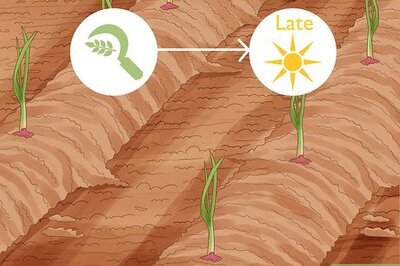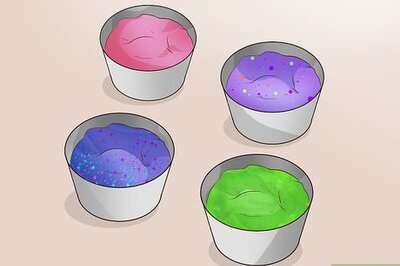
views
Rat snacking, or snacking between meals, has become a prevalent habit in today’s fast-paced lifestyle. While it provides momentary satisfaction, its impact on health and sustainability raises concerns. A seemingly innocuous behavior, warrants attention for its potential health and habitual implications. Regular indulgence in snacks may lead to obesity and related health issues in rats, mirroring human concerns. Understanding these impacts is crucial for responsible pet ownership, as it sheds light on the significance of balanced diets for rodents. Addressing rat snacking habits can promote their overall well-being and longevity.
Sheela Joseph, Consultant Nutrition, SPARSH Hospital, Bangalore, says, “The term ‘rat snacking’ is sometimes used to describe snacking between regular meals, with the understanding that rats nibble on bits of food during the day. Snacking between meals is not necessarily bad for you and can be a part of a healthy diet. Sustaining such eating habits, however, could lead to overeating, and unhealthy snacking could potentially lead to weight gain and health issues associated with it. Depending on the kind of food one snacks on, this periodic eating pattern can become either more or less sustainable.”
Edwina Raj, Head of Services, Clinical Nutrition & Dietetics shares causes, effects and prevention strategies:
Causes
- Stress and Emotional EatingSnacking often stems from stress, boredom, or emotional triggers.
- Convenience and AccessibilityEasy access to processed snacks contributes to mindless munching.
- Irregular Meal TimingSkipping meals or having irregular eating schedules may prompt snacking.
Effects
- Weight GainExcessive snacking can lead to an increased calorie intake, contributing to weight gain.
- Dental IssuesFrequent snacking, especially on sugary foods, can lead to dental problems.
- Digestive DiscomfortOverconsumption of snacks may cause indigestion and bloating.
- Nutrient ImbalanceSnacking may replace nutritious meals, leading to nutrient deficiencies.
- Mindful EatingBe conscious of what and why you’re eating, addressing emotional triggers.
- Balanced MealsEnsure regular, balanced meals to reduce the urge to snack.
- Healthy Snack Optionsopt for nutrient-dense snacks like fruits, nuts, and yoghurt.
- HydrationDrink water to curb false hunger signals and stay hydrated.
“Snacking on foods such as low calorie fruits, raw or steamed vegetables and sprouts in the form of salads (without salad dressing) and unsalted healthy nuts & seeds in small quantities are a better choice instead of unhealthy options such as processed or sugary foods. They can help us stay full for longer, reduce the likelihood of mindless munching and help us snack responsibly. While snacking in between the meals, one should take care to have low carbohydrates, low fat and high fibre along with a good amount of protein in the main meals,” opines Joseph.
Rat snacking, though tempting, can have detrimental health effects. Adopting mindful eating habits, maintaining regular meals, and choosing nutritious snacks can promote a healthier and more sustainable approach to food consumption. “Balancing indulgence with nutritional awareness is key to long-term well-being,” signs off Raj.




















Comments
0 comment